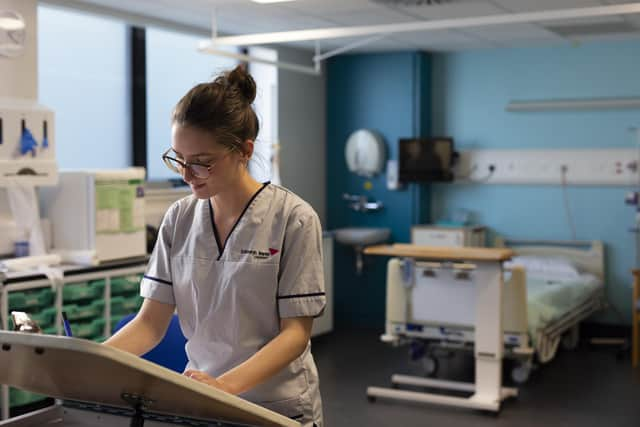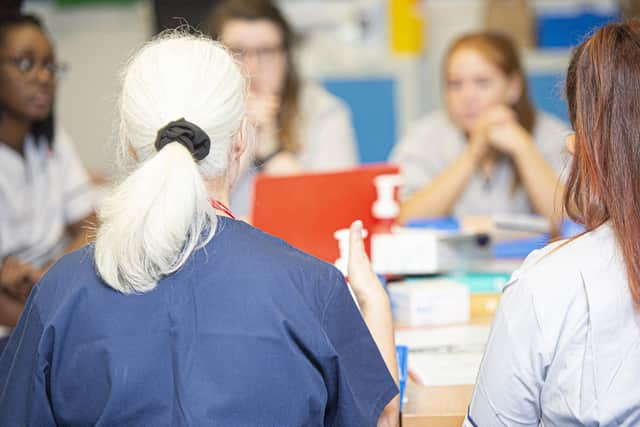Champion our nurses to combine research and clinical careers - Nicola Roberts
However, the Covid pandemic has highlighted the importance of medical research. Whether it was trials for vaccines, or reviewing evidence to help dispel misinformation, the experience of the last two years has proved that not all research studies are equal.
We need to involve students in research wherever we can. Their degree-level projects or Masters dissertations are often a great gateway into critical thinking and bringing up new concepts.
Advertisement
Hide AdAdvertisement
Hide AdI recently published some work looking at the experiences of nurses working in respiratory settings during the pandemic. The study looked at depression, anxiety and how staff were managed during Covid. Qualitative research looking at the experience of workers in this context proved very powerful – and hopefully it will help improve how we respond to similar crises in the future.


Research is a crucial part of all health-related programmes, knowledge is continually evolving and being able to find, understand and consolidate it is an important part of any health-related career. I understand from an undergraduate perspective that you may feel if you have completed your degree that your learning is complete – but that is never truly the case.
So, what skills do we need to give student nurses to thrive throughout their career? Research is embedded in the nursing programmes, but it can often be quite subtle. Students will look at published papers, read guidance and browse websites - but there are often few hands-on opportunities to get involved in forming the perceived wisdom.
It is so important that nursing students have nurse role models to see how others have managed to combine clinical and research skills together, to prove they are not mutually exclusive. Academic institutions can be fantastic at showcasing their active researchers, but it can be difficult to embed this in the teaching programme. I believe it is always inspirational to see your lecturer’s published papers - it still sticks in my mind from my undergraduate teaching from a very long time ago!
What may be even more valuable for students though, is to be shown examples of different roles and career pathways for nurses. It is not just about working in acute care, secondary care or community settings - there is a huge range of career options. This isn’t always made clear in nursing, unlike for those training to be other kinds of health care professionals. But undergraduate programmes are just the start.


The Chief Nursing Officer for England recently published a strategic plan for research highlighting the benefits that having nurses involved in and leading research has for the NHS. Similarly, the Scottish Nursing Vision 2030 advocates promoting the partnership between practitioners and researchers to expand evidence-based practice. But this needs to start at the beginning of their university courses.
As an academic we need to champion our staff and their research and show how this is obtainable for our nursing students and what skills and expertise they need to do it and most importantly how to do this embedded as part of their clinical career not a completely separate path.
Dr Nicola Roberts, Associate Professor, School of Health & Social Care, Edinburgh Napier University
For a Scottish perspective on news, sport, business, lifestyle, food and drink and more from Scotland's national newspaper, go to www.scotsman.com
To subscribe go to www.scotsman.com/subscriptions
Comments
Want to join the conversation? Please or to comment on this article.